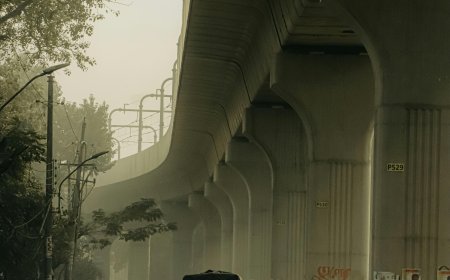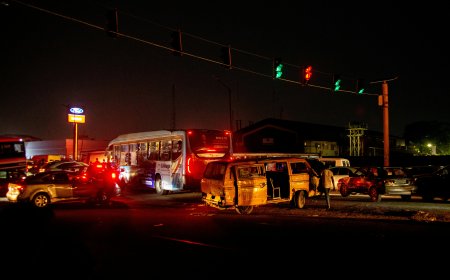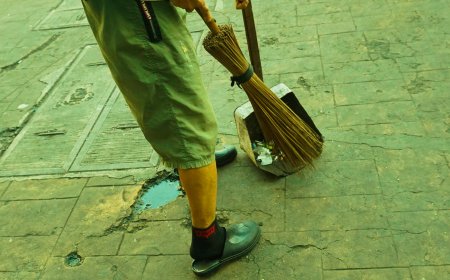California Bill Ensures Homeowners Earn Interest on Insurance Payouts
A new California law guarantees homeowners, not lenders, receive interest on disaster insurance payouts held in escrow.

For thousands of California families, the aftermath of a wildfire or earthquake is not just about rebuilding walls and roofs—it’s about rebuilding lives. Yet many discovered an unexpected hurdle: insurance checks meant for recovery were sitting in bank escrow accounts, quietly earning interest that homeowners never saw.
That loophole may soon close. On Monday, the California legislature passed a landmark bill that guarantees homeowners receive at least 2% annual interest on insurance payouts held by mortgage lenders after a natural disaster. The measure, now awaiting Governor Gavin Newsom’s signature, has the potential to reshape how insurance funds are managed during some of the hardest moments in a homeowner’s life.

Why Insurance Payouts End Up in Escrow
When a home is destroyed or heavily damaged, insurers typically issue checks jointly payable to the homeowner and the mortgage lender. That money is then deposited into an escrow account, where it sits until the lender approves disbursements for rebuilding.
The system was designed to protect lenders’ financial interests in the property. But in practice, it has often created long delays for families waiting on desperately needed funds. While the money sits, lenders earn interest—sometimes for years—while homeowners receive nothing.
California law has long required lenders to pay interest on escrowed funds used for taxes and routine insurance. Yet insurance settlement checks for disasters were not explicitly covered, leaving a costly gap.
A Push Sparked by Wildfire Victims
The urgency for reform intensified after January’s devastating wildfires tore through Southern California, destroying thousands of homes. As families scrambled to secure temporary housing, contractors, and building permits, many learned their insurance payouts were being held in lender-controlled accounts.
Assemblymember John Harabedian, D-Pasadena, said he began hearing from constituents who felt trapped by banks holding onto their money. “If the homeowners are not given their money right away, the interest on that money should be paid to the homeowner, not the banks,” he explained.
That sentiment resonated with lawmakers across the state, leading to bipartisan support for legislation that would guarantee homeowners at least 2% interest on escrowed insurance funds.
What the New Bill Does
Under the new legislation, homeowners will see several significant changes:
-
Guaranteed Interest: Escrow accounts holding insurance payouts must pay homeowners no less than 2% simple annual interest.
-
Retroactive Coverage: The law applies not only to future claims but also to existing insurance funds currently locked in escrow. Interest will start accruing on the bill’s effective date.
-
Level Playing Field: Mortgage servicers can no longer profit from interest generated on disaster funds, shifting financial benefit back to the families rebuilding their homes.
The bill aims to ensure fairness during recovery, particularly when homeowners are already burdened with costs far beyond what insurance policies cover.
The Human Toll: Families in Limbo
For many, the issue is not just financial—it’s deeply personal.
Take the case of a Ventura County family whose home was reduced to ashes during the winter wildfires. Their insurance payout arrived promptly, but weeks turned into months as their mortgage servicer released only partial funds. Meanwhile, the escrow account quietly earned interest.
“We were living out of a hotel room with two kids, paying out-of-pocket for meals and clothes, while hundreds of thousands of dollars with our name on it just sat there,” the homeowner recalled. “It felt like the bank was profiting from our disaster.”
Stories like these highlight why lawmakers saw the issue as urgent. The new bill, supporters say, not only provides modest financial relief but also restores a sense of fairness to a system that felt stacked against families in crisis.
Why Interest Matters More Than You Think
At first glance, 2% may not sound transformative. But in the context of six-figure insurance settlements held for extended periods, the sums are meaningful.
-
A $250,000 payout sitting in escrow for 18 months would now generate about $7,500 in interest.
-
For larger settlements, interest can climb into the tens of thousands—funds that can pay for temporary housing, moving costs, or essential supplies.
“This is not charity,” Harabedian noted. “It’s simply returning to homeowners what is rightfully theirs.”
Closing a Loophole in Escrow Law
The legislation closes a longstanding gap in California’s financial regulations. While escrow accounts tied to property taxes and standard insurance premiums already required interest payments to homeowners, disaster-related insurance payouts slipped through the cracks.
Consumer advocates have argued that the loophole created perverse incentives for lenders to delay releasing funds, since they kept the interest. By mandating payments back to homeowners, lawmakers hope to realign incentives and improve transparency.
Governor Newsom’s Support
Governor Gavin Newsom, who backed the bill from the start, framed it as a matter of equity. In February, he described the measure as “a commonsense solution” to ensure families receive every available resource after catastrophic loss.
“Homeowners rebuilding after a disaster need all the support they can get,” he said. “This law guarantees they won’t lose out on funds that are supposed to help them recover.”
With the governor’s signature widely expected, the law could take effect within months, offering relief to families still waiting on insurance checks from recent wildfires.
Wider Implications Beyond California
While the bill is limited to California, its passage could spark conversations nationwide. Natural disasters are increasingly common in the U.S., from wildfires in the West to hurricanes in the Gulf and tornadoes in the Midwest.
If successful, California’s model may pressure other states—or even federal regulators—to require similar protections for homeowners. The idea that banks profit from disaster escrow accounts could prove politically toxic elsewhere.
For now, California homeowners are poised to become the first in the country guaranteed interest on their own recovery funds.
Conclusion: A Win for Homeowners, A Signal to Banks
The new legislation represents more than just a financial tweak—it’s a symbolic win for homeowners who often feel powerless in the face of both natural disaster and bureaucratic red tape. By mandating that interest flows back to families, not lenders, California lawmakers are reinforcing the principle that disaster relief should serve the victims, not financial institutions.
For families picking through ashes or waiting on permits, the money won’t rebuild their homes overnight. But it will help cover costs, restore dignity, and ensure they are not left behind while their funds work for someone else’s bottom line.
As wildfires and climate-driven disasters intensify, policies like this may become essential—not just in California, but across the country.
FAQs
1. When will California homeowners start earning interest on escrowed insurance funds?
The law will take effect once Governor Gavin Newsom signs it. Interest will accrue at 2% simple per annum from that date forward.
2. Does the bill apply to past insurance claims?
Yes. Existing insurance payouts already sitting in escrow accounts will begin accruing interest once the law is active.
3. Why were banks keeping the interest before?
California law required interest payments on tax and insurance escrows but did not explicitly cover insurance settlements, creating a loophole that lenders benefited from.
4. How much money could homeowners gain?
Depending on the size of their insurance payout and how long it sits in escrow, homeowners could earn thousands—or even tens of thousands—in interest.
5. Will other states adopt similar laws?
California’s move could set a precedent. Other disaster-prone states may consider adopting similar protections if public pressure builds.
What's Your Reaction?
 Like
0
Like
0
 Dislike
0
Dislike
0
 Love
0
Love
0
 Funny
0
Funny
0
 Angry
0
Angry
0
 Sad
0
Sad
0
 Wow
0
Wow
0






































































